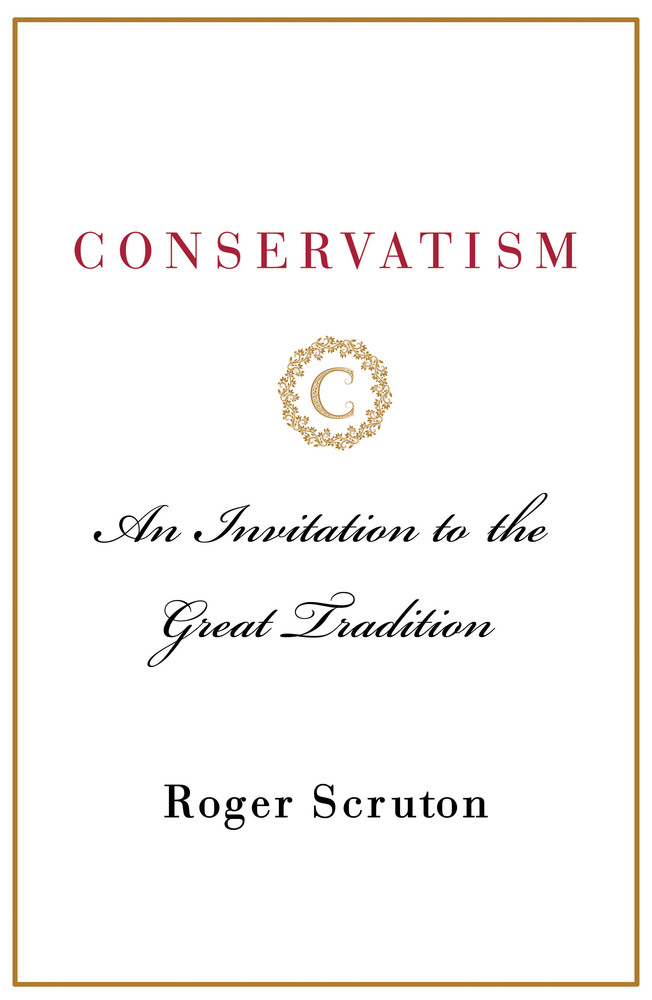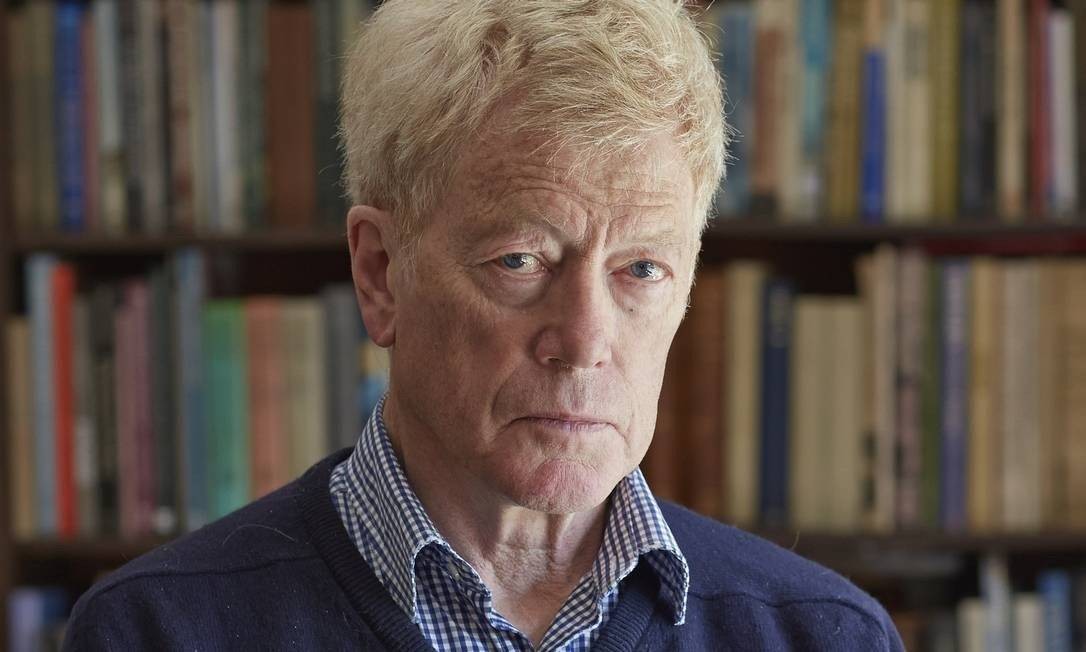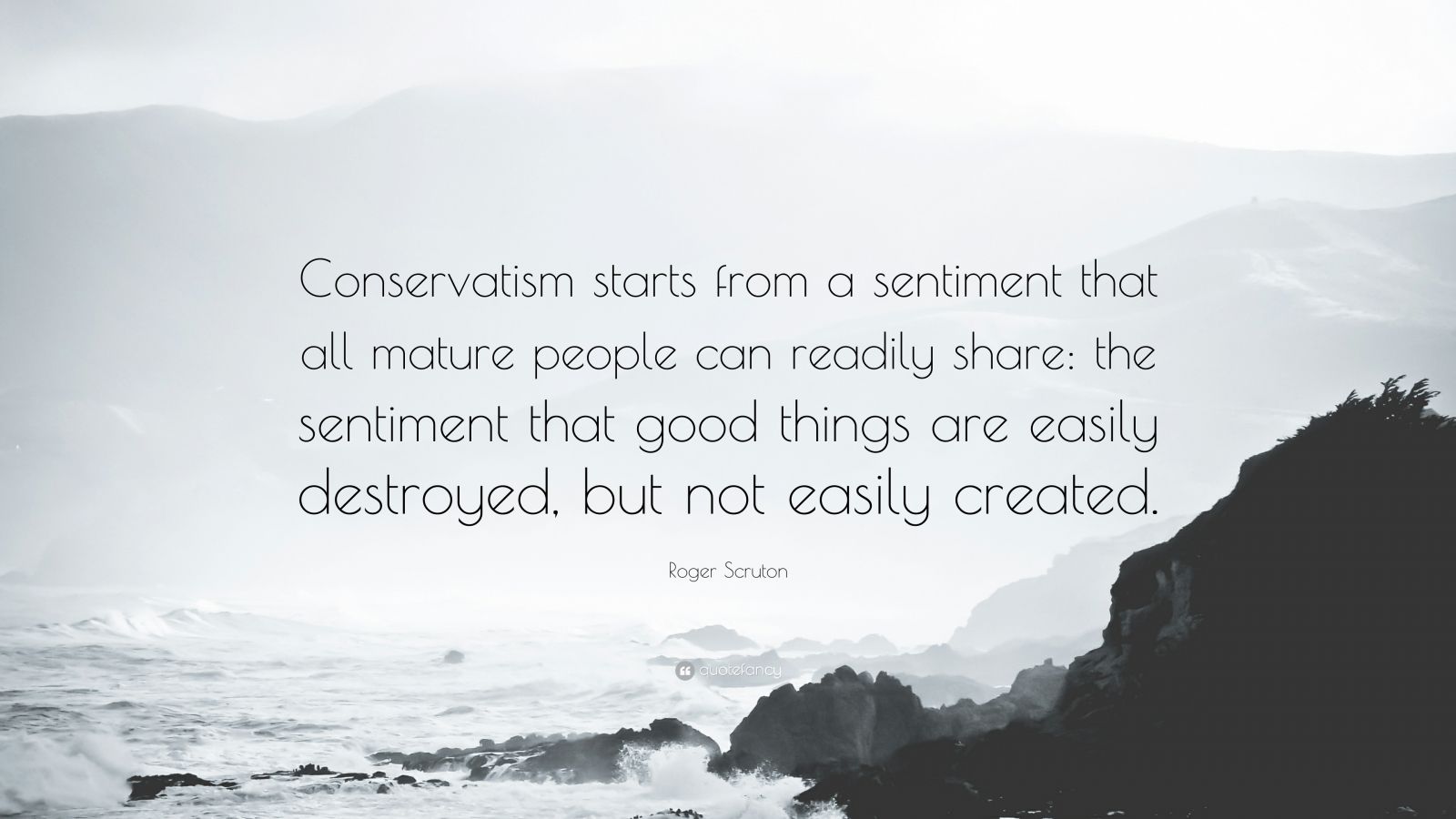Published in 2017, a little over two years before his death, this I think was Roger Scruton’s last published work devoted to conservatism proper. He has written other books on music and art, albeit as seen through a conservative lens, but their primary focus were aesthetic and not civic. Conservatism: An Invitation to the Great Tradition summarizes a great career of a man who has lived his life in the public square with a particular philosophy that runs against the current of contemporary ethos. Roger Scruton (1944-2020) was a conservative in the paleo conservative sense, not some neoconservative rebranding of once Liberal thought. He is British, though has had a voice in European and American conservative circles, a professor of philosophy, has published over 50 books on a wide range of subjects, and for almost twenty years was chief editor at the conservative quarterly, The Salisbury Review. Prior to the collapse of the Soviet Union, Scruton helped establish underground academic networks in communist controlled countries.
This is an excellent and concise book on the history of modern conservatism by an author who lived through most of the debates of the last fifty years. When Scruton identifies modern conservatism, he says it is “a product of the Enlightenment,” although acknowledging that conservatism dates back in every era of history. Conservatism for Scruton is a set of customs, values, and institutions built by a community over time that have proven to sustain, preserve and “ensure [the] community’s long-term survival” and that give it a sense of identity and unity. Conservatism in the modern sense is a counter to the Liberal emphasis of reshaping society as radical individualism that rose out of the Enlightenment. “Tradition,” as Scruton observes from Edmund Burke, “is a form of knowledge.”
Scruton walks us through the philosophical ideas that have shaped conservatism going back to Edmund Burke, who argued against a notion of society as a “social contract” (from Jean-Jacques Rousseau) but as a “shared inheritance for the sake of which we learn to circumscribe our demands, to see our own place in things as part of a continuous chain of giving and receiving, and to recognize that the good things we inherit are not ours to spoil but ours to safeguard for our dependents” (p. 45). Indeed I never signed a social contract but I was certainly born into a shared inheritance.
Modern conservatism began as a defense of tradition against the calls of popular sovereignty; it became an appeal on behalf of religion and high culture against the materialist doctrine of progress, before joining forces with the classical liberals in the fight against socialism. In its most recent attempt to define itself it has become the champion of Western civilization against its enemies, and against two of those enemies in particular: political correctness (notably its constraints on freedom of expression and its emphasis in everything on Western guilt) and religious extremism, especially the militant Islamism promoted by Wahhabi-Salif sects. In all these transformations something has remained the same, namely the conviction that good things are more easily destroyed than created, and the determination to hold on to those good things in the face of politically engineered changed. (p. 127)
Scruton
brings us through a lot of material and personages in such a short book: Burke,
Locke, Hume, Blackstone, Adam Smith (and not just for his economic theories), Samuel
Johnson, Jefferson, Madison, Tocqueville, Maistre, Chateaubriand, Coleridge,
Arnold, Ruskin, Chesterton, Hayak, even T.S. Eliot, Simone Weil, and D.H.
Lawrence. And of course there is William
F. Buckley, Russell Kirk, and Scruton himself.
I can’t name them all, but it is quite a journey. This is a gem of a book.
Notable quotes from the book:
“We human beings live naturally in communities, bound together by mutual trust. We have a need for a shared home, a place of safety where our claim to occupancy is undisputed and where we can call on others to assist us in times of threat. We need peace with our neighbors and the procedures for securing it. And we need the love and protection afforded by family life. To revise the human condition in any of those respects is to violate imperatives rooted in biology and in the needs of social reproduction. But to conduct a political argument as though these factors are too far from the realm of ideas to deserve a mention is to ignore all the limits that must be borne in mind, if our political philosophy is to be remotely believable. It is precisely the character of modern utopias to ignore these limits – to imagine societies without law (Marx and Engels), without families (Laing), without borders or defenses (Sartre).” (p. 10)
"The most important input into conservative thinking is the desire to sustain the networks of familiarity and trust on which a community depends for its longevity. Conservatism is what the name says it is: the attempt to conserve the community that we have - not in every particular since as Edmund Burke put it, 'we must reform in order to conserve,' but in all matters that ensure our community's long-term survival." (12)
“What [Samuel] Johnson believed he also exemplified, which was a firm moral sense combined with a robust eccentricity of manner and a deep respect for aesthetic values. For Johnson, the established church, which brought people together in a shared recognition of God’s presence in their daily lives, was the heart of political order. Tolerance should be extended to dissenters and unbelievers, but not at the expense of orthodoxy.” (30)
“Liberals saw political order as issuing from individual liberty; conservatives saw individual liberty as issuing from political order. What makes a political order legitimate, in the conservative view, is not the free choice that create it, but the free choices that it creates, The question of which comes first, liberty or order, was to divide liberals from conservatives for the next two hundred years.” (31)
“Conservatism is about freedom, yes. But it is also about the institutions and attitudes that shape the responsible citizen, and ensure that freedom is a benefit to all. Conservatism is therefore also about the limits to freedom. And here, in the potential conflict with the extreme liberal view that values freedom above all other things and refuses to set limits to its exercise, we encounter one of the principal political issues of our times.” (39)
"For Maistre, obligation to the sovereign can have no basis in contract or consent, but only piety towards established things. The true object of political obligation is not the state, but God, and it is in religious duty that the obligation towards all human institutions must ultimately be founded. Moreover, it is God, not man, who is the maker of constitutions, and the ultimate legislator, all French revolutionary thought on this subject being nothing but blasphemy designed to fortify human incompetence." (69)
"Thus in a celebrated essay, ‘Tradition and the Individual Talent’ (1919)…[T.S.] Eliot argued that the originality and sincerity demanded of the artist cannot be reached in isolation, that each new work acquires its expressive power through the tradition that makes room for it, and that in every sphere tradition is a process of continuous adaptation of the old to the new and the new to the old. Without tradition, originality is neither significant nor truly perceivable, and this evolutionary view of tradition is clearly applicable to civil society as a whole. This essay left a profound mark on literary criticism and also on the practice of poetry. But its lesson has been learned and repeated by political philosophers too." (93)
“But by the end of the nineteenth century the political philosophy of conservatism had turned in another direction. In its original form, as described in the first two chapters, conservatism was a response to classical liberalism, a kind of ‘yes, but…’ in answer to the ‘yes’ of popular sovereignty. It was a defense of inheritance against radical innovation, an institution that the liberation of the individual could not be achieved without the maintenance of customs and institutions that were threatened by a single minded emphasis on freedom and equality. By the end of the nineteenth century conservatism had begun to define itself in another way, as a response to the gargantuan schemes for a ‘just’ society, to be promoted by a new kind of managerial state. In this battle conservatism became, to a great measure, the true defender of liberty, against what was at best a rising system of bureaucratic government, at worst, as in the Soviet Union, a tyranny yet more murderous than that of the Jacobins in revolutionary France.” (104)
"Throughout its growth as a modern nation America has been built from below, through the free association of its citizens - a point noted and praised by Tocqueville in Democracy in America. This has offered scope for conservatism as a philosophy of civil society - a philosophy that outlines and justifies the intrinsic form of civil order, against the attempt to control and amend them through the institutions of the state." (137)
“This
led [Samuel Huntington] to raise, in Who
Are We? (2002), the question of American identity. Written in the wake of the atrocities of 11
September 2001 (the 9/11 attacks on New York and Washington DC), the book
argues that it will be impossible to respond in a coherent way to the Islamist
threat without regaining confidence in our own identity. This means confidence not in our political institutions
only, but in the spiritual inheritance on which they ultimately rest. The correct response to Islamist belligerence
is, therefore, not simply the reaffirmation of the liberal order and the secular
state. It is the rediscovery of
ourselves, in a systemic policy of cultural conservatism.” (149-50)
This is a great interview shortly after this book was published.
Roger Scruton is one of my idols.




No comments:
Post a Comment